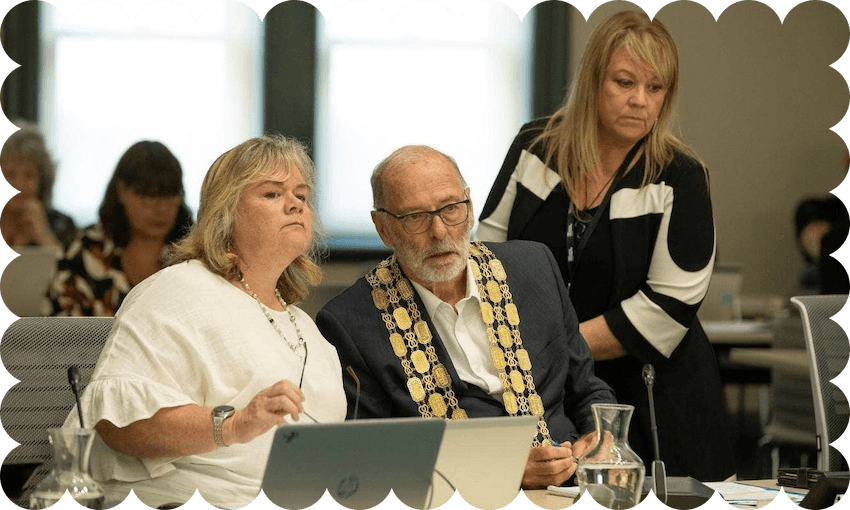At a time when our need for collective action is stronger than ever, Auckland Council has opted out to save each of its residents just 25c a year, writes former Dunedin mayor Aaron Hawkins.
I grew up in rural Southland, in the shadows of the Cut The Cable movement. In 1992 we huddled together to conserve locally generated energy to help power the North Island. We all did our bit (even if some of us were a wee bit bitter about it).
One of the strengths of our society is the idea of us all pitching in, to make sure that help is available to those who need it. A big part of this is the tacit acknowledgment that those with the means to do so will support those that don’t, and that those respective fortunes can change.
We do it as a country by way of taxes, and as towns, cities and districts by way of rates. But we also do it between towns, cities and districts.
When Wairoa was battling with commercial forestry companies over their rating method, and when Queenstown Lakes was staring down the barrel of leaky homes liability, who did they turn to for help? Local Government New Zealand.
Who spent $60,000 supporting Auckland Council’s defence in the Supreme Court when its targeted rate for accommodation was challenged? Also LGNZ.
Local government doesn’t always win these arguments, but it always stands a better chance when it goes in to bat as a team.
Civil defence emergencies – the likes of which we’ve recently seen, and that we know we’ll see more frequently – are another great leveller. Dunedin City Council sent staff up to Auckland to help with the flood cleanup. LGNZ coordinated efforts around the country so that communities not affected by Cyclone Gabrielle could support those that had been.
They did that because they saw themselves as part of a collective local government family.
The message they got back from Auckland Council yesterday when they voted to exit LGNZ is clear – don’t expect any help in return.
What does this mean for the rest of us? Membership fees for LGNZ are set depending on your population (Auckland’s somewhere between $350,000 to $400,000 a year), but so are its voting rights. It is a democratic, membership-based organisation, but Auckland Council has (had) a far bigger say than any one else on the floor of the AGM. LGNZ presidential elections have been won and lost on Auckland’s support.
Subscriptions only made up a fraction of LGNZ’s revenue last year – with Auckland’s contribution a significant chunk of that – so while it is far from a fatal blow it will certainly mean doing less, at a time when demands on local government have never been higher.
And this is where the collateral damage is felt most keenly.
The larger metro councils all have significant policy departments, and can respond under their own steam to the government’s legislative programme. This is true of any government, but especially the reformist zeal of the current one, including water reform, resource management reform, and the future for local government work.
Smaller councils don’t have that luxury. They don’t have the population base to support those staff, but they can rely on LGNZ as a policy shop. They can then either support those submissions, in the case of Select Committee processes, or amend them to suit more easily because the ground work has been done.
A small part of that 25c or so each Aucklander pays in to LGNZ a year goes to making sure a range of voices – urban, suburban, provincial, rural – are heard by central government, or by wider stakeholder organisations, on the issues of the day. That is the sort of work that has been put at risk yesterday, but the irony here is that it isn’t all one-way traffic.
As councillor Andy Baker argued in debate, Auckland has rural communities within its boundaries, but its political focus is largely urban. His constituents in Franklin benefit from the advocacy of the rural and provincial sector that comes as part of their LGNZ membership. (As an aside, the right-leaning Baker’s support for membership showed that this wasn’t a debate along partisan lines. The mayor’s camp included Auckland’s quasi-environmental barnacle Wayne Walker.)
In my nine years of involvement I found LGNZ to be an increasingly useful organisation to be a part of, especially in its support for Māori, Pasifika and younger elected representatives – groups tragically under-represented on local councils. Those mutually beneficial connections – between Auckland and the rest of the country – will now be lost.
It was also instrumental in setting up the Local Government Funding Agency, which has allowed Auckland the ability to borrow money cheaply. And it offers the sector as a whole the opportunity to approach professional development and advocacy together.
Local government is united in its view that we need different funding and financing tools, something Auckland is acutely aware of right now, but this will always be an easier pitch to make to government as a collective.
A collective that is always stronger than the sum of its parts, but is certainly all the weaker for the decision taken yesterday.
Aaron Hawkins is a former mayor and councillor of Dunedin City. He has served on the National Council of LGNZ; on its Policy Advisory Group; and was an inaugural Co-Chair of its Young Elected Members Network.





